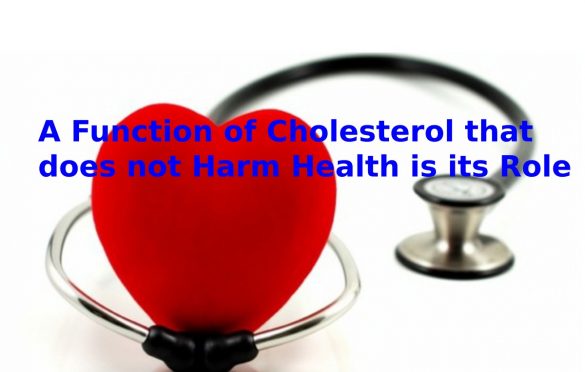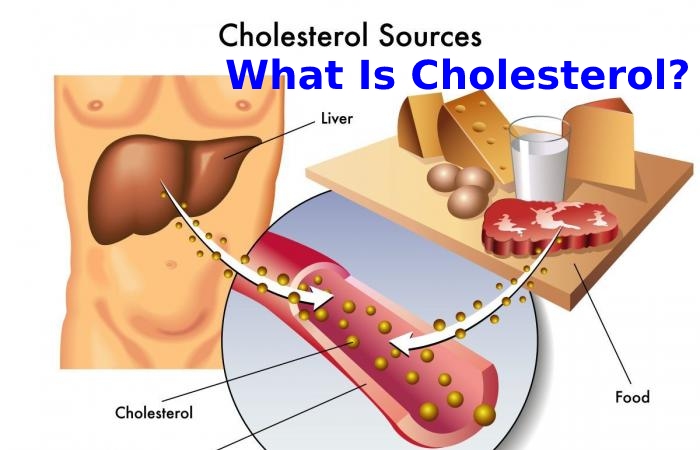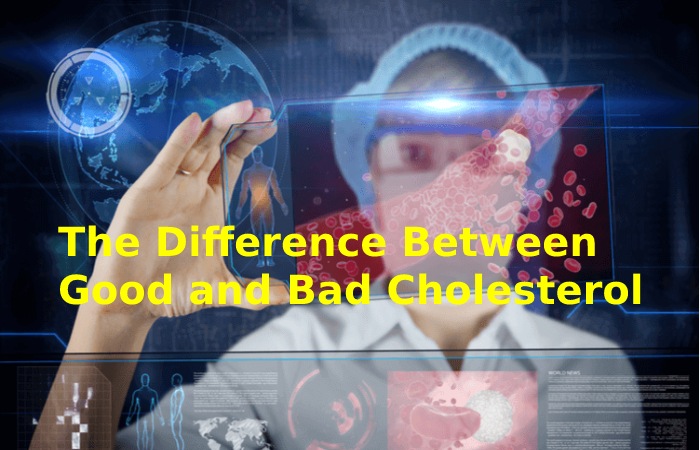Information – A Function of Cholesterol that does not Harm Health is its Role

Table of Contents
Why Some Cholesterol Does Your Body Good? – A Function of Cholesterol that does not Harm Health is its Role.
Extraordinary cholesterol can place you at risk for heart disease if left natural. Although having too great cholesterol in your body is not well, you still need it to perform some essential functions in the body. Therefore, you cannot do without it entirely.
However, few persons are aware of its benefits, and even medical experts are still discovering the many functions in the body. Some might wonder what kinds of cholesterol will give them heart disease or what is considered heart disease for life insurance?.
What Is Cholesterol? – A Function of Cholesterol that does not Harm Health is its Role.

Cholesterol, a waxy compound that some have compared to soft candle wax, is a sterol type. Sterols are a kind of fat found in plant and animal tissue, although only animals have varying amounts of cholesterol. Your body makes a lot of the cholesterol it needs in your liver, but you can get it from your diet. Animal foods such as chicken, beef, eggs, or dairy products contain cholesterol.
What’s Cholesterol Doing in There? – A Function of Cholesterol that does not Harm Health is its Role.
It plays a part in creating and maintaining membranes and cell structures. Cholesterol can get between the fat molecules that make up the cell, making the membrane more fluid. Cells also need cholesterol to help them adapt to changes in temperature.
Cholesterol is essential for producing essential hormones, including the pressure hormone cortisol. Fat is also used to make the sex hormones testosterone, progesterone, and estrogen.
The liver also uses cholesterol to make bile, a fluid that plays a vital role in fat processing and digestion.
Nerve cells use cholesterol as an insulator.
Your body also needs cholesterol to make vitamin D. In sunlight, cholesterol converts into vitamin D.
The Difference Between Good and Bad Cholesterol – A Function of Cholesterol that does not Harm Health is its Role.

If cholesterol is so essential, why is it sometimes called “bad” and sometimes “good”?
Your liver packs cholesterol into lipoproteins, combinations of lipids (fats), and proteins. Lipoproteins work like commuter buses that carry cholesterol. Other fats like triglycerides, fat-soluble vitamins, and other materials through the bloodstream to cells that need them.
Low-density lipoproteins, sometimes called “bad cholesterol,” get their lousy rap because high levels are associated with an increased risk of heart disease.4 LDL contains more cholesterol than protein, making it lighter. . LDL circulates in the bloodstream and carries cholesterol to cells. When oxidized, LDL can promote inflammation and cause lipids to build upon the vessel walls of the heart. And the respite of the body, forming plaques. These plaques can thicken and limit or completely block blood and nutrients in affected tissues or organs.
HDL, or high-density lipoproteins, are also commonly referred to as “good cholesterol.” HDL is heavier than LDL. Because it contains more protein and less cholesterol, and HDL gets its name because it pulls cholesterol from cells to the liver. Having higher HDL levels can also help lower your risk of developing cardiovascular disease.
What Is Good Cholesterol and How Do I Improve It?
Cholesterol is a fatty, waxy substance that plays a vital role in the body, and it found in cells and helps make hormones, such as estrogen.
Your liver makes enough cholesterol for the body to function efficiently. But some foods, mainly animal products, such as eggs, dairy products, and meat, also contain cholesterol.
High-density lipoproteins (HDL) and low density (LDL) carry cholesterol to and from cells.
HDL considered “good” cholesterol because a healthy level protect you from cardiovascular disease. In contrast, LDL is considered “bad” cholesterol because it contributes to the arteries’ fat (plaque) buildup.


